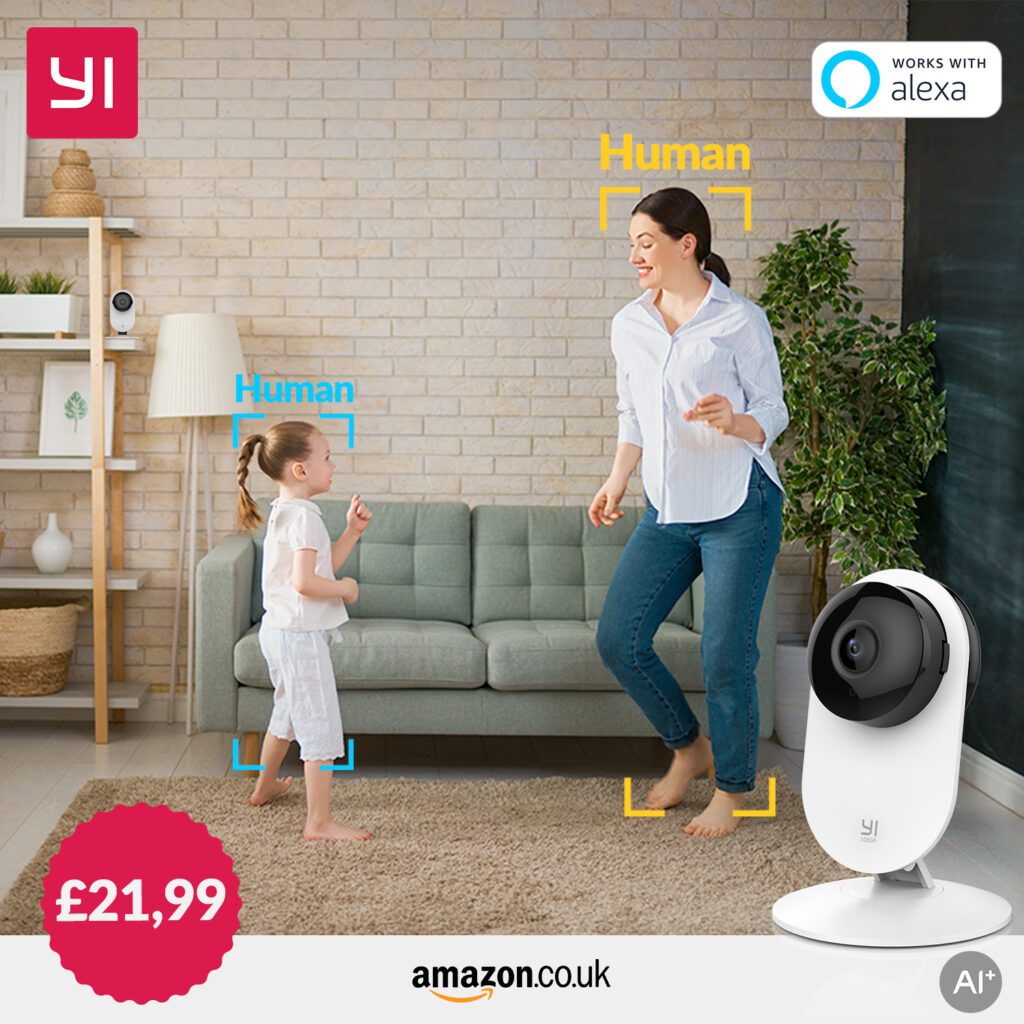 Frost loves the YI Home camera 1080p, which thanks to the new integrated SensLab chip is now powered by Artificial Intelligence and can detect humans in motion at up to 20 fps (which makes the camera able to detect even a person running at high speed and send timely activity alerts), for a top-of-the-line security experience!
Frost loves the YI Home camera 1080p, which thanks to the new integrated SensLab chip is now powered by Artificial Intelligence and can detect humans in motion at up to 20 fps (which makes the camera able to detect even a person running at high speed and send timely activity alerts), for a top-of-the-line security experience!
Other relevant features include:
– Non-invasive night vision with 8 adjustable Infrared LEDs (940nm each) which can provide visibility even in pitch dard and with no visible glare. The camera also features the ability to switch off both the infrared lights (ideal for soft light environments) and the status light, which makes it ideal for undisturbed sleeping.
– Free and secure Cloud Storage: If the motion detection function is enabled, any time an activity will be detected by the camera, a proper 6-seconds video-clip showing the detected activity will be stored for 7 days for free and secured in YI Cloud with an end-to-end encryption. Convenient premium plans with longer storage options (including Continuous Video Recording) are also available.
– Loud and clear Two-Way Audio, to talk to your beloved ones or ward-off intruders,with Walkie-Talkie Mode (only one side can talk and listen at a time) or Telephone Mode (both parties can talk and listen to each other simultaneously).
– On/Off scheduling & Customizable Alerts:The camera operating time can be set for each day of the week and the alert frequency and the motion sensor sensitivity level can also be adjusted. And thanks to the Activity Zone function it is possible to receive notifications only once motion is detected in the preset area.
– Smart, flexible and robust design: The durable polycarbonate support offers numerous viewing angles thanks to its adjustable base. The lens can also be removed from the support and either be used individually or integrated into third party mounting supports.
– Advanced security: Optional pin-code to lock the camera settings and livestream access and advanced bank-grade end-to-end encryption via EU-based server to ensure full security and privacy to all the recorded footage.
– Upgraded local storage capacity: The camera now supports Micro SD cards from 8 to 128GB (upgraded capacity), for both Continuos and Activity-Only Video Recording. The micro SD footage can be visualized both from the YI Home app and from PC/laptop (with a proper SD reader)
The upgraded, AI-Powered YI Home Camera 1080p is on Amazon.co.uk for only £27.99, with limited stock because of Amazon’s temporary stop of new supply due to the COVID-19 emergency (additional stock expected in mid-June).


